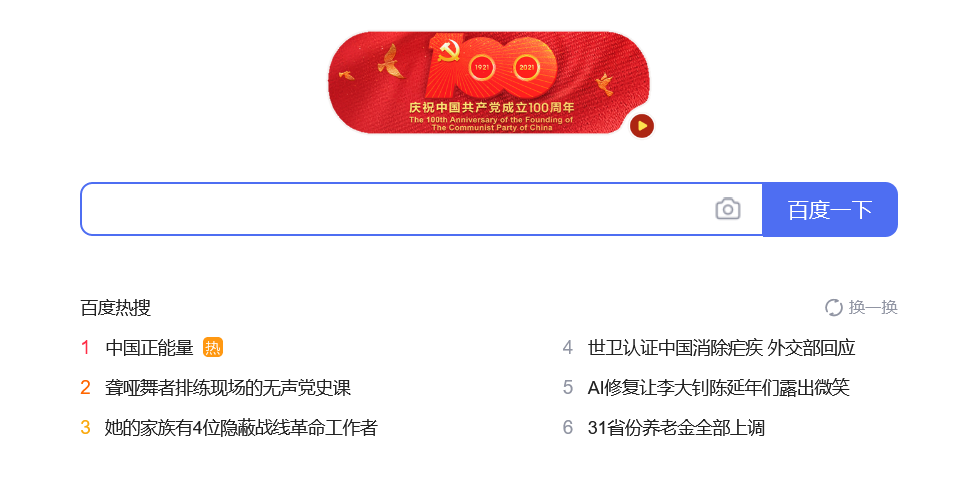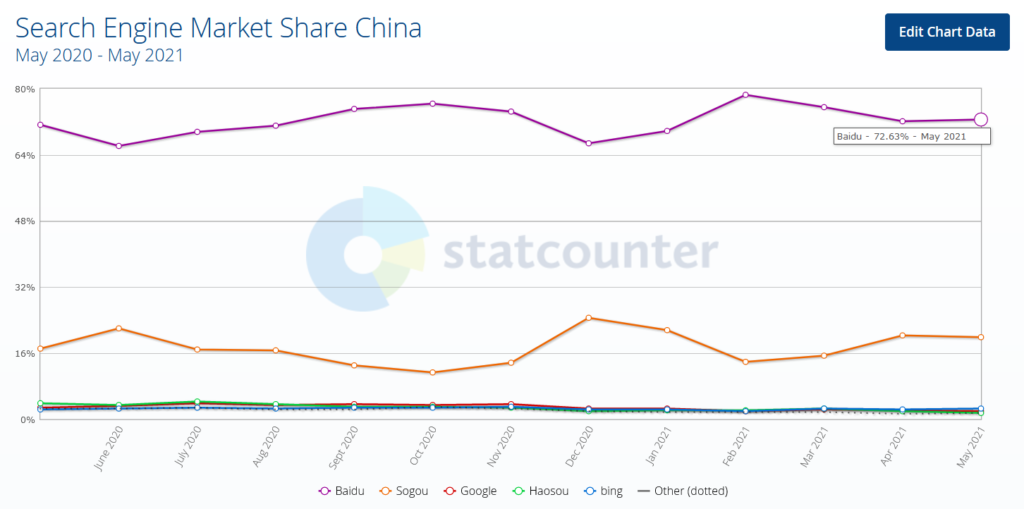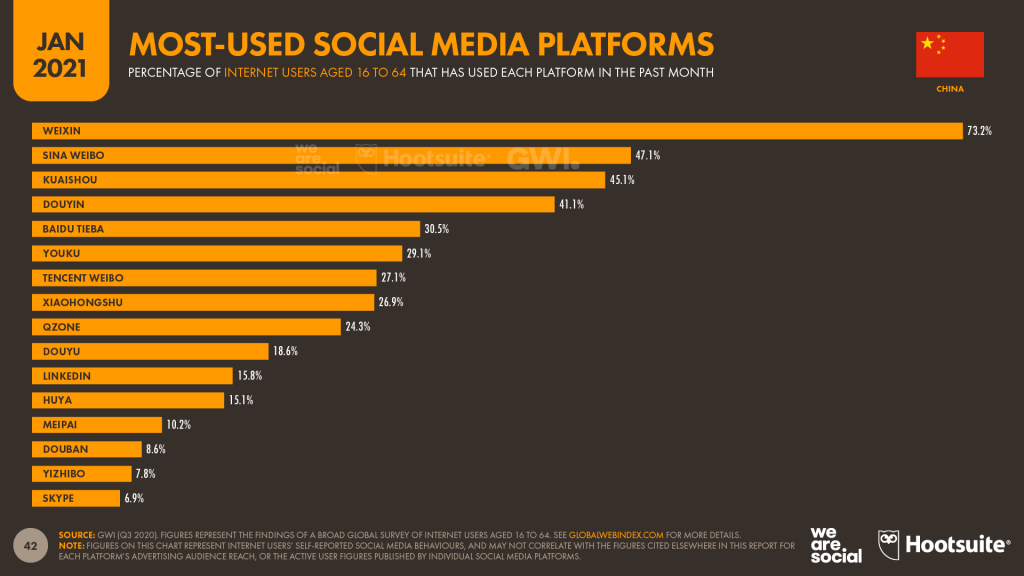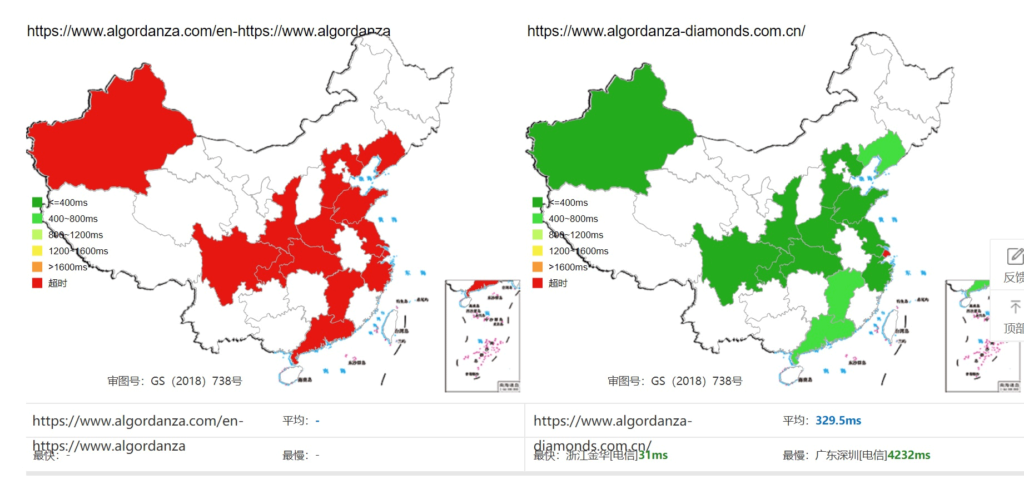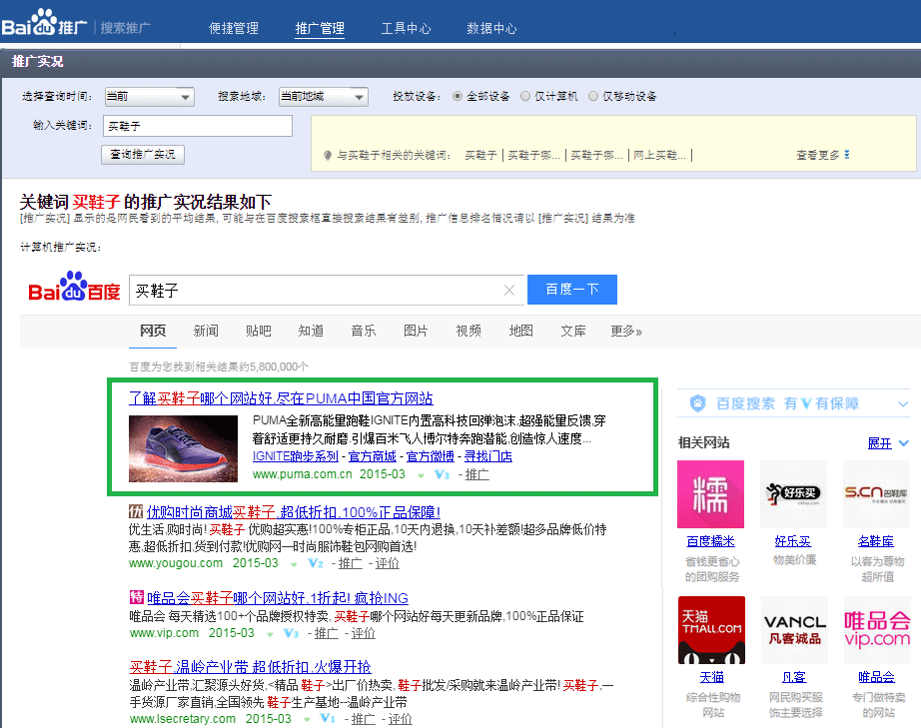For SEO practitioners accustomed to optimizing for Western companies like Google and Bing, the prospect of optimizing for Baidu—China’s search engine supreme—can be daunting.
But it doesn’t have to be, even if you’re totally unfamiliar with Baidu and its methods. All you need are the right tactics and tips to achieve success, and 15 of the best are just ahead.
- What Is Baidu?
- 1. Invest in High-Quality Translation
- 2. Optimize Meta Descriptions
- 3. Be More Mobile-Friendly
- 4. Stick to Standard Code
- 5. Write Image Alt Text
- 6. Use Baidu Webmaster Tools
- 7. Put Your Best Content First
- 8. Be Mindful of Sensitive Topics
- 9. Do Your Research
- 10. Reach New Users on Social Media
- 11. Build Your Link Portfolio
- 12. Consider Local Hosting
- 13. Publish New Content Regularly
- 14. Keep an Eye on Keyword Trends
- 15. Consider PPC
What Is Baidu?
If you’re not already familiar with Baidu and how it’s different from Google, here’s the long and the short of it.
Google is by far the most widely used search engine in the world, but that’s not the case in China. The company did enter the Chinese market in 2006, but just four years later it withdrew completely amidst censorship-related struggles with the Chinese government.
As such, Google was never able to establish itself in China the same way it has nearly everywhere else. So instead of using Google to search the web, the majority of China’s residents use another search engine called Baidu.
Baidu was originally founded in January of 2000, and today employs over 40,000 people and is one of China’s biggest software companies.
As of May 2021, Baidu had a total Chinese market share of 72.63 percent, with its only real competitor being another Chinese search engine called Sogou:
So is Baidu better than Google? In terms of the Chinese search engine landscape, absolutely—Google’s market share is virtually nonexistent, while Baidu’s tops the charts.
Suffice it to say, Baidu optimization is non-negotiable for anyone wishing to grab the attention of visitors from China. If you fall into that camp then it’s time to ask yourself, “How can I improve my SEO on Baidu?
Rest assured that with the following 15 tips you’ll be enjoying higher Baidu rankings in no time.
1. Invest in High-Quality Translation
Assuming that the site you’re optimizing is written in a language other than Chinese, your first order of business is to get it translated.
More specifically, you’ll need to get it translated into simplified Chinese if you’re marketing to mainland China, Malaysia or Singapore, or traditional Chinese if you’re marketing to Hong Kong, Macau or Taiwan.
What’s most crucial is that you invest in a high-quality translation service if at all possible (or if you’re particularly lucky, recruit the help of colleagues who are fluent in Chinese). Automatic translation tools just aren’t going to cut it, so a more nuanced approach is necessary for maximum efficacy.
2. Optimize Meta Descriptions
Unlike Google, Baidu actually uses meta descriptions as a ranking factor. These are the brief descriptions that can show up under a search result in the SERPs:
So while you should always write unique meta descriptions for each page regardless of the search engine you’re optimizing for, it’s especially important when optimizing for Baidu.
To get the best results possible, remember to include the page’s primary keyword and keep the description well-written and natural-sounding.
3. Be More Mobile-Friendly
Just like Google, Baidu places a lot of emphasis on mobile-friendliness when ranking pages. This makes sense given that their flagship app sees about half a billion monthly active users.
To ensure your site performs smoothly from within Baidu’s mobile app as well as from users’ own browsers:
- work on improving overall page speed;
- steer clear of long walls of text;
- use a legible font in a size that doesn’t require zooming in on to read;
- place each page’s most important content above the fold;
- ensure all buttons are big enough to comfortably tap with a finger;
- adopt responsive web design; and
- use Baidu’s own mobile adaptation tool to tell the search engine that your main site URL and mobile site URL are related.
4. Stick to Standard Code
Baidu’s crawlers can’t render content written in JavaScript like Google’s can, so be sure to avoid it and stick to standard HTML instead.
Also stay away from iFrames and Flash, though since iFrames are no longer commonly used and Flash is officially dead you probably already were.
After your site’s code is complete, it never hurts to run it through W3C’s Markup Validation Service. You can do so via URI, file upload or direct input depending on your preference:
This will ensure that your site’s code is accurate and can be easily understood by Baidu’s crawlers.
5. Write Image Alt Text
Image alternative text, or alt text for short, are brief descriptions of images that both search engines and people can use to understand what those images depict.
You can see if an image has alt text by viewing its source code:
Baidu uses alt text to determine how images should be ranked, so it’s crucial for SEO practitioners to write accurate, unique and high-quality alt text for every image. Be sure to include any relevant keywords, and always keep it as natural-sounding as possible.
Don’t forget that alt text should be written for humans too—in terms of site accessibility, alt text is used by people who are blind or have visual impairments.
6. Use Baidu Webmaster Tools
If you’re used to optimizing sites for Google then you’re already familiar with Google Search Console, a suite of tools designed to help webmasters see how their site is performing, view valuable metrics and determine how to boost their rankings.
Baidu’s Webmaster Tools platform functions in the same way—there, you can see exactly how Baidu is crawling and indexing your site and find out how it can be improved for better rankings and performance:
If you’re not fluent in Chinese, you can turn to third-party guides such as those provided by Dragon Metrics and BaiduGuide to understand how Baidu’s Webmaster Tools works.
7. Put Your Best Content First
While Google’s crawlers typically don’t run into crawl budget issues with sites that have less than a few thousand URLs, Baidu’s have a much shorter attention span, so to speak.
Because of this, you’d do well to place each page’s best and most important content toward the top. This means things like primary keywords, answers to possible user questions and vital information should come first.
8. Be Mindful of Sensitive Topics
If you’re from a Western country, it may strike you as unusual for the government to have any sway over business’ online content. But that’s exactly the case in China, and all websites have to abide by the government’s rules if they want to remain visible to users.
As stated in an official 2020 document from the Chinese government, restricted online content includes:
- exaggerated titles;
- gossip;
- improper comments on natural disasters, major accidents or other disasters;
- anything sexual in nature;
- horror or gore; and
- anything that may encourage minors to contradict social norms.
All such content can be categorized as “negative” and should be avoided at all costs. Otherwise, you risk having your site hidden from Baidu’s search results entirely, as well as those of any other Chinese search engine.
9. Do Your Research
As is the case when performing international SEO of any kind, it’s necessary to conduct in-depth cultural and market research when optimizing a site for Baidu and its users.
To get a general understanding of the specific behaviors of Chinese consumers, you can start by reading an article about the cultural differences between China and your country. Then, you can perform more in-depth research specific to your niche.
If the site you’re optimizing sells home improvement products, for example, you should read a market research report on the home improvement landscape in China. One such report from Euromonitor found that home improvement sharply declined in China in 2020, especially in terms of big-ticket items requiring professional installation. If you were planning on selling those types of products, that information could save you a significant amount of time and money.
For even more personalized insights, you may also want to consider hiring a market research firm that specializes in Chinese digital marketing.
10. Reach New Users on Social Media
While social media sites like Twitter, Facebook and Instagram may not be commonly used in mainland China, there are a number of Chinese alternatives you can use to expand your reach and attract more visitors.
The most popular social media platforms in China include WeChat and Kuaishou, both of which have more than one billion monthly active users.
Other widely-used choices include Sina Weibo, Xiaohongshu and Douban, among others:
Get active on one or more of those platforms, create business pages whenever possible and start interacting with your new audience.
11. Build Your Link Portfolio
Just like Google, Baidu considers backlinks and their quality when deciding how high a site should rank in the SERPs. The more high-quality links you have pointing to your site, the better.
But remember that backlinks from Chinese websites are what matters for Baidu’s algorithms—since mainland China’s internet is in many ways isolated from foreign sites, including giants like Wikipedia, YouTube, Reddit and yes, Google, backlinks from those places won’t do you any good.
Besides, links from Chinese websites serve as a clear indicator that your site is relevant to Chinese users, so they’d be worth pursuing even if many non-Chinese websites weren’t blocked.
As with any other link building strategy, it’s essential to start with top-notch content. Create content that users will find valuable and you’re more likely to passively gain organic backlinks from a variety of sources.
Then, start familiarizing yourself with reputable Chinese journalists and publications relevant to your vertical. Tag them on social media, let them know about upcoming articles or events when appropriate and offer to write guest posts.
It may take time, but the high-quality backlink portfolio you’ll build using these tactics is sure to be worth the wait.
12. Consider Local Hosting
Page speed is an important ranking factor for Baidu, but achieving fast speeds for Chinese users can be difficult when your site is hosted on servers located thousands of miles away.
The easiest way to solve this problem is to host your website locally, i.e. on servers located in or near China. Doing so can make a big difference—in the following example, a website hosted on servers located far outside of China experienced unacceptably slow loading times, but loaded significantly faster when hosted on Chinese servers:
Unfortunately, web hosting in mainland China is far from straightforward. As the Singapore-based company Alibaba Cloud explains, businesses looking to host their websites from within China are required to:
- apply for an Internet Content Provider (ICP) registration;
- obtain an ICP Filing (if they wish to distribute information);
- obtain an ICP Commercial License (if they wish to sell goods or services); and
- obtain an Electronic Data Interchange (EDI) License (if they wish to process data or transactions).
What’s more, the forms used to apply for an ICP registration and EDI License can only be completed in Chinese.
If this is outside the scope of your abilities, the next best solution is to use a web hosting service located very close to (but not actually in) mainland China. For example, you could turn to services like GoDaddy Hong Kong or Dataplugs. These offer fast loading times for Chinese site visitors without all the red tape associated with mainland China hosting.
13. Publish New Content Regularly
Ten pieces of high-quality content are much more effective than 20 pieces of low-quality content, and as long as search engines keep prioritizing quality then that fact will never change.
That being said, search engines also value fresh content and regularly updated sites (and so do human readers). Baidu is no exception, so it’s important for sites to regularly publish new quality content. Depending on your preferences, this could mean writing new blog posts, adding new products or something else entirely.
Just be sure to keep an eye on your site’s metrics to determine which publishing schedule resonates best with your audience.
14. Keep an Eye on Keyword Trends
You probably don’t need to be told that keyword research is a key component of a successful SEO strategy. The same is true for Baidu SEO, and an excellent place to start is the Baidu Index.
You can think of it as Baidu’s version of Google Trends—simply input any keyword or phrase into the search field and you’ll be able to see its current search trends:
This can help you form a clear idea of Chinese users’ demands and interests so you can choose the best keywords for your site.
15. Consider PPC
As is always the case when launching a new site, reaching out to a new audience or entering a new market, a promotion campaign can give you the momentum you need to achieve the results you’re after.
But how do you promote on Baidu? With the help of its pay-per-click (PPC) campaign management platform, Baidu Tuiguang. If you choose to launch a campaign, your site will of course be displayed toward the top of the SERPs. Nanjing Marketing Group’s guide to Baidu Tuiguang provides a handy example of what that looks like:
So if you’re looking to supplement your organic SEO with a paid campaign, Baidu Tuiguang is an ideal solution.
Master Baidu SEO to Reach a Whole New Market
Anyone who’s considered optimizing a site for the Chinese market has likely asked themselves, “How can I improve my SEO on Baidu?” With the above tips at your disposal, you won’t have to wonder any longer.
And remember, while Baidu SEO might in some ways differ from Google or Bing SEO, what’s most important is that you prioritize quality, create content tailored to your audience and always remain willing to learn.
Image credits
Screenshots by author / June 2021
StatCounter / May 2021
CLI / April 2021
We Are Social China / February 2021
Oxygen / March 2020
Nanjing Marketing Group / April 2018

